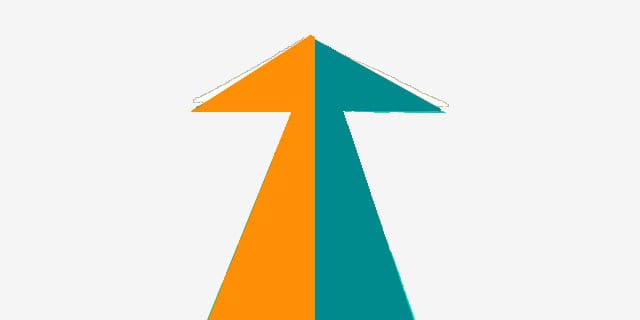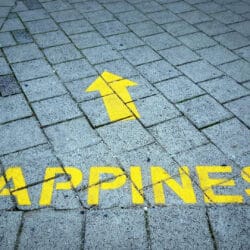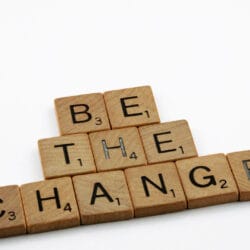In a digital world where AI technology is coming thick and fast, how can we…
The lifestyle career has taken a new impetus in recent years. As a long-term lifestyler, I speak the truth (through spiral dynamics) about the good and bad.
‘I quit my job for a more purposeful career’, ‘I handed in my notice’, ‘I now work from my laptop on a beach’
We’ve all heard these before. Chances are this might even be you, or you are considering this.
As a long-term lifestyler (or location independence digital nomad – quite the mouthful) I certainly know the usual story, from the very start and all the way through 10 plus years of living it. What I didn’t know was how lifestyle careers would also have a flipside. A definite positive side, yes, absolutely, but also an interesting flipside that may only become apparent the longer you’ve been living in one.
Hi, I’m Richly, A Lifestyle Career Veteran
skip past this intro if you want
Considering I’ve lived this way for over a decade, with no boss, traveling and living in multiple different countries, and foregoing the conventional career path, you’d be surprised to hear that much of the material on this website (thus far) isn’t about any of that.
It’s dedicated more towards my career specialty in being a creative (design) thinker and innovation coach (plus a writer when I decide to change hats), and the psychology and techniques around using those skills to make an impact.
Yet, after speaking to my friend about my relatively new site (which I finally had the time to curate and put together through the lockdown last year – I even tried to learn developing to make everything here from scratch – a LOT more time consuming than they tell you ha) he thought I should expand on my experiences more, and share my wisdom.
I think he’s right. Storytelling is something I do in books I write, so why not here.
Well, truth is, I always tried to avoid talking too much about myself. In a novel, I can let thoughts flow through a character I created, but within blog articles, it felt uncomfortable to me to unravel details of my life, even if it is to the benefit of trying to help someone else.
You won’t really find me on social media. I’ve prided myself on being able to live the past decade without much social media presence (bar Whatsapp – if that even counts). I don’t even have an (updated) LinkedIn account (the last time I touched that was around 2008 I think, much to the annoyance of potential clients trying to analyse me before even speaking to me).
There was a point early on in my traveling twenties where I felt compelled to do your traditional travel blog as I was traveling, but it felt a bit like those people who do ‘make money online’ websites to, well, make money online. I didn’t think of myself as having any more particular knowledge around traveling at the time than the thousands of others busy working on their travel blogs, and I didn’t want to only be able to afford a traveling lifestyle through making money from a travel site.
Sure, it made sense. It’s fresh in your mind, you are excited by it, and it’s a nice way to document your trip, but after seeing a few too many ‘travelers’ not really traveling and spending half their time in hostels or internet cafes writing voraciously (or do I mean ferociously, maybe both) about their travel adventures that they were half going on, I decided to give it a miss and focus on what worked for me.
Yet, even that professional approach wasn’t exactly straight and narrow, more far and wide. It certainly led towards what could be called a lifestyle career. It basically consisted of waves. Blocks (or projects) of focused work for clients, and then blocks traveling. I didn’t have a home or a base though. I didn’t work at the office and then pop off to a country on an extended holiday before returning. I never really ventured ‘home’ much at all, other than for short family visits from time to time over the years.
Anyway, the purpose of this article isn’t meant to be solely about me. It does have a story to tell but the narrative is meant to lead towards the point, which is mainly about the good and bad of lifestyle careers.
The Psychology Going On: Enter Spiral Dynamics
This site takes a psychological look at a lot of subjects and this article is no different. There are strong psychological reasons why someone would want to consider a location-independent lifestyle career.
On the surface, what’s not to like. You have the flexibility to go wherever you want, you can build a career around your interests, and you don’t have a nagging boss to answer to all the time.
To those stuck with those dilemmas as their reality then it’s clearly a big pull. I certainly welcome it when I see more and more people embracing change and trying to make their life more purposeful.
Yet, I did say there’s a psychological edge (or flipside) to this too. I’ll get there in a minute (or two) but it’s worth understanding what is happening mentally to us during this time.
When I first ventured to pastures unknown with no freelance job or anything set up (just a strong desire to do something different than stay in a fixed routine and climb a ladder to nowhere), I was absolutely in that same bracket. I pushed hard for flexibility and to live a life that encompassed something meaningful to me and purposeful in where it was heading.
It’s probably a good time to bring in a few colours to help explain the shifts that started occurring. For those in the know about spiral dynamics then you’d know what I mean by blue thinking, orange thinking, and green thinking. If you don’t then to summarise quickly: blue thinking is the value system that values order and structure, orange is the next ‘spiral’ along that values success (status, individualism, capitalism, risk-taking), and beyond that green’s values are formed around community (equality, environmentalism, consensus).
Out of all the theories and approaches to understanding life out there, I don’t think any really hit home as simply as this did for me, most likely because I also had drawn something up before hearing about spiral dynamics that was pretty in line with it. It gave validation to my journey of exploration in some ways.
When you understand how each of these ‘thinking hats’ (as I call it) work then it helps explain a LOT about the psychological conditioning and needs of people throughout their life.
The Change Towards Desiring A Lifestyle Career Today
So, putting that framework on myself I found that over a decade ago I was most likely itching to get out of that typical blue thinking cycle we get into (especially after so much schooling, university, and jobs directing us). There becomes this natural tendency to break out from that cycle in order to ‘graduate’ to the next value system.
A decade ago I was in good company. The whole idea of the 4 Hour Workweek was still in full swing. Drop the office job and find the beach. Work less and live more.
It’s not that the idea has gone away, it’s just that today the notion is a little bit different under the surface than when it was 10 years ago (although the pandemic has absolutely brought this blue control to orange freedom urge back).
Today, we find people still want to drop out of work in order to find their own individualism, but there’s a further desire beyond that. They aren’t doing it to ‘make their own way’ as such. It’s not as much about taking a risk, making their own pocket, and enjoying a selfish lifestyle.
Today, people want more. They have higher values on the whole as we have since evolved. They are doing it to find meaning and connection elsewhere. Over the past few years, we have accelerated as a society (in many parts anyway) towards green thinking, and during the pandemic, we’ve seen this accelerate further as countless people joined The Great Resignation.
This was fueled by the desire to get out of a work environment that made them feel unfulfilled, but also unappreciated. People were woken up to the fact that there was life outside of work and that returning to work following lockdowns gave them a tremendous feeling of discomfort. Like they had come to realise just how bad their robotic life was – one which they couldn’t see when plugged into it all the time.
So, lifestyle careers today mean more than just not working in a 9-5 office environment. It’s come to be central towards striking a healthy work-life balance for many, and it’s not even just the balance, it’s the nature of the work.
More people are finding themselves quitting decent careers (financially decent) and taking big cuts to find something that gets them back into nature or back into a long-lost craft, both things they found they missed during the lockdown.
You could argue it could just be a temporary adjustment, and people will undoubtedly end up back in the cubicles, just cubicles with fewer people, more plants, and more zoom talks. You could also argue that it’s a fundamental change happening around the way we work itself.
More and more people want to strike a healthy balance through either remote work, working from home, or a hybrid balance of flexible hours, whether that be part-time, contract work, etc.
As someone who has long been an advocate of freelanced contract hours (providing you can self-manage yourself, and that took me a LONG time to get right, especially with mild adult ADHD), I can see the benefits it will have on people’s lives, mainly because of one changing factor.
Orange thinking told us we need to make it, be the big shot, have all the money in the bank. Green thinking tells us money is just a part of the bigger picture. It’s more rounded, it’s a richer way of looking at life.
Why Lifestyle Careers Are Not Always A Good Idea
Yet, this article talks about the good and bad of a lifestyle career. So, why is a lifestyle career also a bad idea today?
Well, there are usually a few answers that spring to mind when anyone would try and question what-on-earth I was doing with my life. It’s harder to find structure (not always a bad thing though), it makes progression and security somewhat harder, and you have to work harder to find your desired balance (which can leave you burnt out and defeat the point of it).
Yet, these are somewhat okay when you outweigh the positives it brings to your overall health, freedom, and motivation for meaning.
That said, there’s one particular caveat that is often not seen, and it took me a long time to take hold of it. It’s all part of the spiral dynamics framework too, which is the progression to the next spiral in yellow thinking.
Again for those who don’t know spiral dynamics, then yellow thinking takes things up a notch, a pretty big notch.
Yellow thinking is arguably consistent in what Richly Wills (site) is all about – developing a flexible, creative, integral mindset that isn’t cemented into one set paradigm like before but instead is like an overseer of all the previous paradigms.
[hfe_template id=’10361′]
With a yellow hat on you can see over and understand the perspectives of a green thinker, an orange thinker, a blue, a red, a purple. When in orange you think money is the answer, in green you think equality is, and in blue, you think order and hierarchy.
In yellow you can see the value in all because you’ve been through all. You might not have a full ticket in each, but you have enough to understand their perspective. A green thinker wouldn’t see that, they would be quick to defend themselves and rage against a blue (like the government). A yellow would see the value in both approaches and seek to come up with a flexible solution for all.
So, without going too much more into spiral dynamics, again, why is a lifestyle career a potentially bad idea?
It’s the perfect career for a green thinker, in theory, at first. Yet, like anything, we seek to grow and evolve as humans and not stay still.
The reason we always think the grass is always greener on the other side is because our mindsets are evolving, and a LOT faster than our ancestors who stayed in the relatively steady blue way of thinking for millennia.
Over the past 100 years, and especially the past 30 or so, we’ve seen a monumental shift in our ability to educate ourselves. Not be educated by institutions or religions, like before that, but to have access to the wealth of information and material from wherever we are sat. (It may be that university as we knew it will cease to exist in the future – there’s clearly an issue with dissecting through fake news but there’s just so much valuable information to get our eyes on today elsewhere).
Today, we associate lifestyle careers as a ‘feel-good’ flexible life, and in today’s growing green world we see a growing number of life coaches and mindfulness gurus springing up out of nowhere saying how you should ‘love your life’, ‘believe in yourself’, ’empower yourself’, ‘be happy’, ‘practice gratitude’ and so on.
While I’m not saying we shouldn’t do that, and it certainly pays to be your best friend rather than your own worst enemy, a lot of the advice comes from this green-thinking need for consensus, and this is the problem. It’s almost a bandwagon effect as it leads many people to jump ship from anything that is remotely difficult in life and seek a lifestyle career because they think it will make their life easier, happier, and more rewarding.
Lifestyle careers are certainly meant to give your life more balance, absolutely, but to think that your dream is to just be ‘free’ to not do another day’s work in your life is part of the naivety that comes with this green territory.
In that respect, it’s actually no different from the orange thinkers floating their ego around boasting about their digital nomad tropical island pad lifestyle, whilst at the same time not really doing any work that provides meaning towards something or someone beyond their own selfish gain.
A lifestyle career is meant to be an opportunity to find your best self, not find an easy life that brings no other meaning to the table. So, when I hear of people today telling me they are quitting their long-term jobs to finally be free from the rat race, I tend to surprise them in my abrupt question, ‘And to do what else instead?’.
Usually, the answer comes back in a stuttered, ‘but, but aren’t you meant to love lifestyle careers?’, to which I reply, yes, but only after I went through the countless hours of self-directed study and practice to develop the flexible mindset I have today which is made for a lifestyle career.
You see green thinkers love the idea of a lifestyle career, but not the reality of crafting one to work. They need to be more adaptable to be able to do so, but instead, they are hoping for it to be the answer for helping them muster meaning out of thin air.
While this might sound harsh, if you think it’s going to be easier than having a lifeless job that pays the bills but is devoid of any soul then you might be a little bit mistaken. Of course, it’s certainly more meaningful than that, but easier, nah. I often had days where I just wished I had a sole reliance on a paycheck and could just check out without a worry and then go and enjoy my evening.
When you have a lifestyle career you might be getting to work on the things you want, but you have to work incredibly hard to get that balance. Why? Because it’s always shifting, so you need to be flexible and creative in yourself, but to also ensure you are being of use to someone. It’s not always fun and games when trying to craft a balanced life, despite it looking like a dream from the outside.
Should You Consider A Lifestyle Career At All Then?
It may sound like I’m trying to stop people from trying to create a lifestyle career (or work location independently), but actually no. I strongly recommend it, but mainly for those who are yellow thinkers already, or prepared to work hard to become so.
Why yellow thinkers? Green thinkers have this limited paradigm where they may think they just have to be grateful or believe in themselves each day and things will fall into place. They might, eventually, but not until you have a few wake-up calls and by then you are well on your way to being a yellow thinker anyway.
When your mind is hitting that crossroads from where you realise your ego has been leading you in orange and green, but starts to fade as you enter yellow, it can become a test of character. Reality sinks in that life wasn’t as clear as you thought, and that a lot of what you think was important in orange and green suddenly becomes much less so in yellow.
You have to develop a stronger anti-fragility within to embrace this change and difficultly as part of the process. Go through this process and sure, a lifestyle career just might really work for you, as you see how it aligns with your truer core values.









